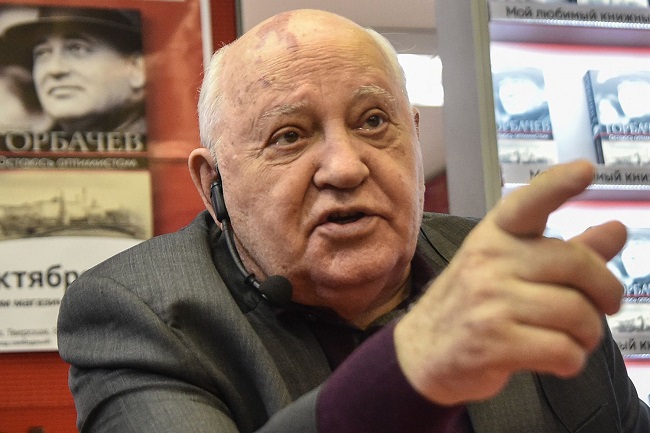Mikhail Gorbachev, who led the Soviet Union to unprecedented success as leader and oversaw the peaceful end of the Cold War, has passed away. After a long illness, the 91-year-old man passed away, according to Moscow’s Central Clinical Hospital.
The New Leader Of Russia Cold War
After a depressing series of ageing, conservative Soviet leaders, Gorbachev provided a breath of new air to Soviet domestic and foreign policy. He changed the globe, which had been trapped in a nuclear stare-down for four decades, and shook up a country that had failed to deliver on most of its promises to its citizens.

Through his policies of “glasnost” (openness) and “perestroika” (restructuring), he shook the Soviet Union out of its complacency and fear. Then, he made it known to the world that the Soviets would not be able to maintain control over the countries of Eastern Europe, setting in motion a series of events that ultimately resulted in the destruction of the Berlin Wall and the overthrow of communist governments across the area. Last but not least, he presided over the far more embarrassing breakup of the Soviet Union into 15 independent states.
As he stood down in December 1991, he declared, “We are now living in a new world.” The Cold War, the arms race, and the insane militarization of the country that has harmed our economy, public attitudes, and morality have finally been put to rest. There is no longer any danger of a nuclear war.
Many people, including historians and politicians, have spent the last several decades debating how much of the transformation can be attributed to Gorbachev and how much to external factors like historical trends and the actions of people like Lech Walesa, Pope John Paul II, and President Ronald Reagan.
Any Soviet leader would have had a tougher time keeping the country on its current course after the events of the 1980s, especially the country’s catastrophic defeat in Afghanistan.
It’s undeniable that Gorbachev was willing to sacrifice his country’s power and reputation in order to accept a drastically altered Soviet society and a new global order. Gorbachev did not, like many of his predecessors did, stick to a vision that had already been disproved.
Last Words
Historian Orlando Figes argued in “Revolutionary Russia 1891-1991” that “the selection of Gorbachev was undoubtedly the greatest revolutionary act in the history of the party since 1917.” To paraphrase, “Had the Politburo realised where he would take the party in the next few years, it would never have allowed him to become its General Secretary.”
Even though Reagan and Gorbachev didn’t trust each other at first, they eventually worked together to end a decades-long weapons race through arms control. Gorbachev’s foreign activities boosted his standing in other countries but hurt his standing at home.


















